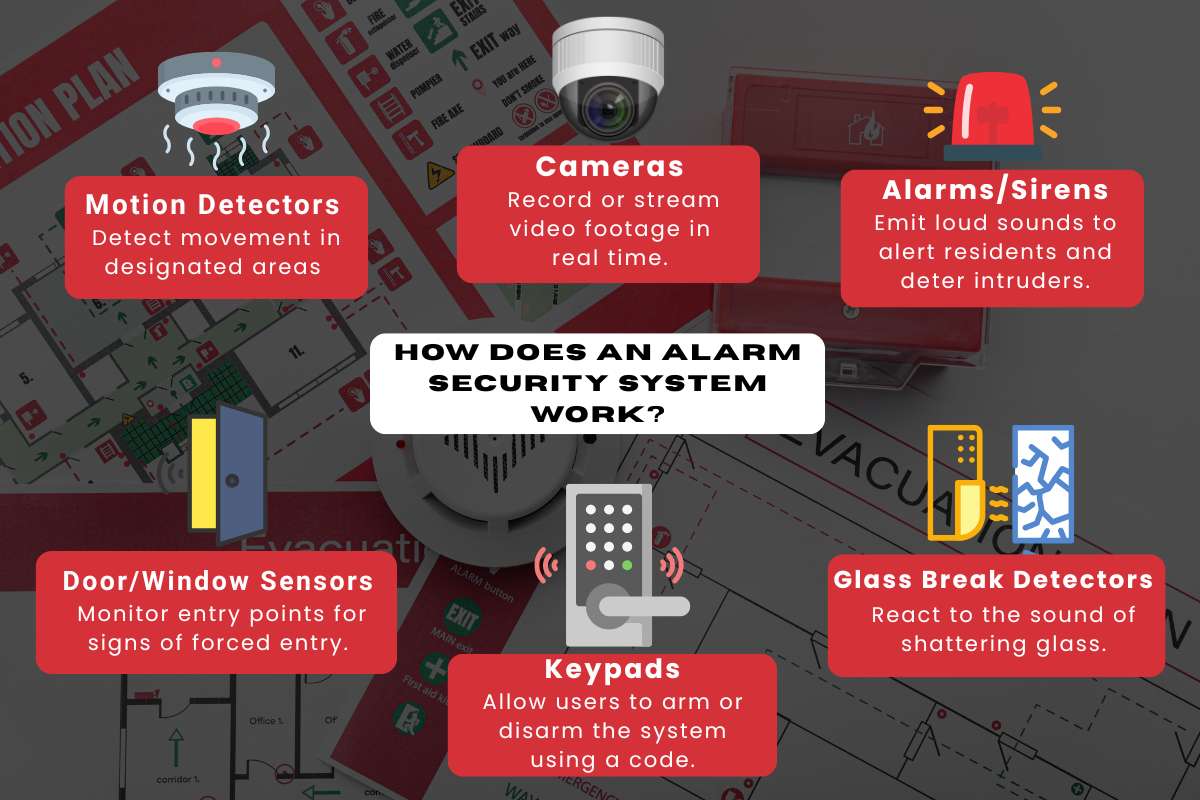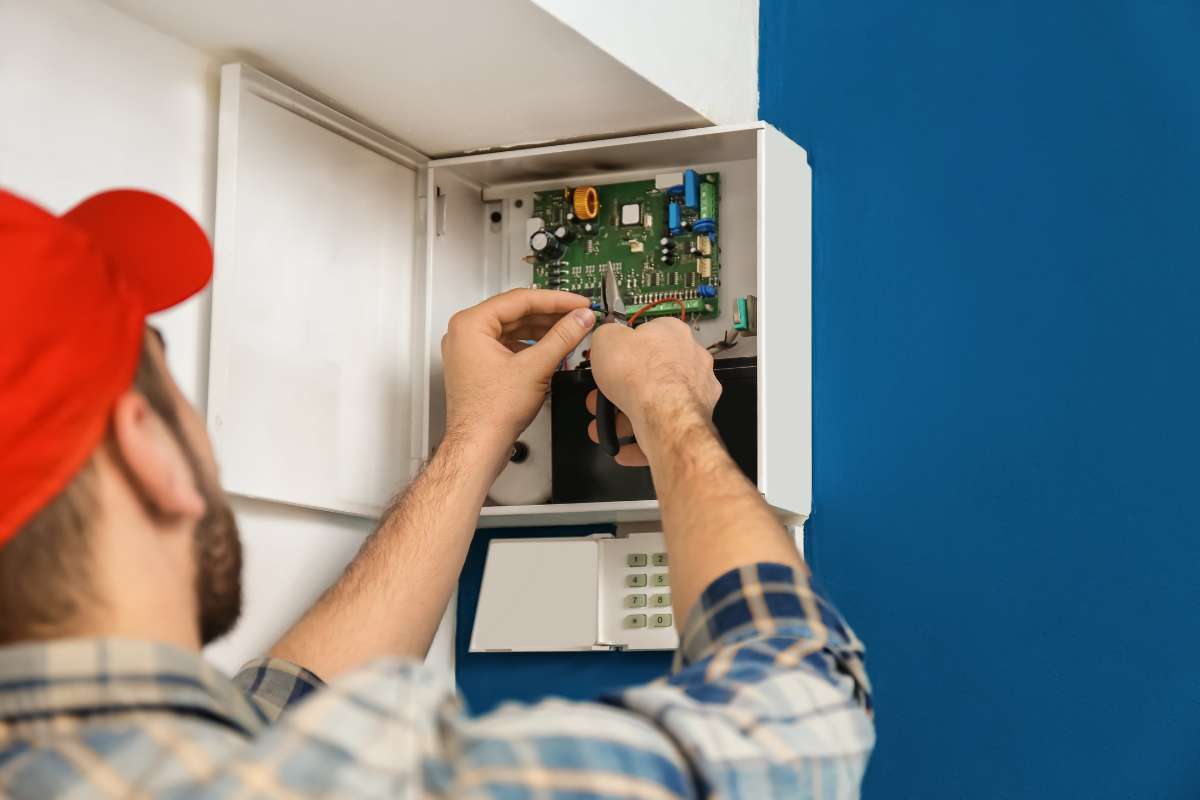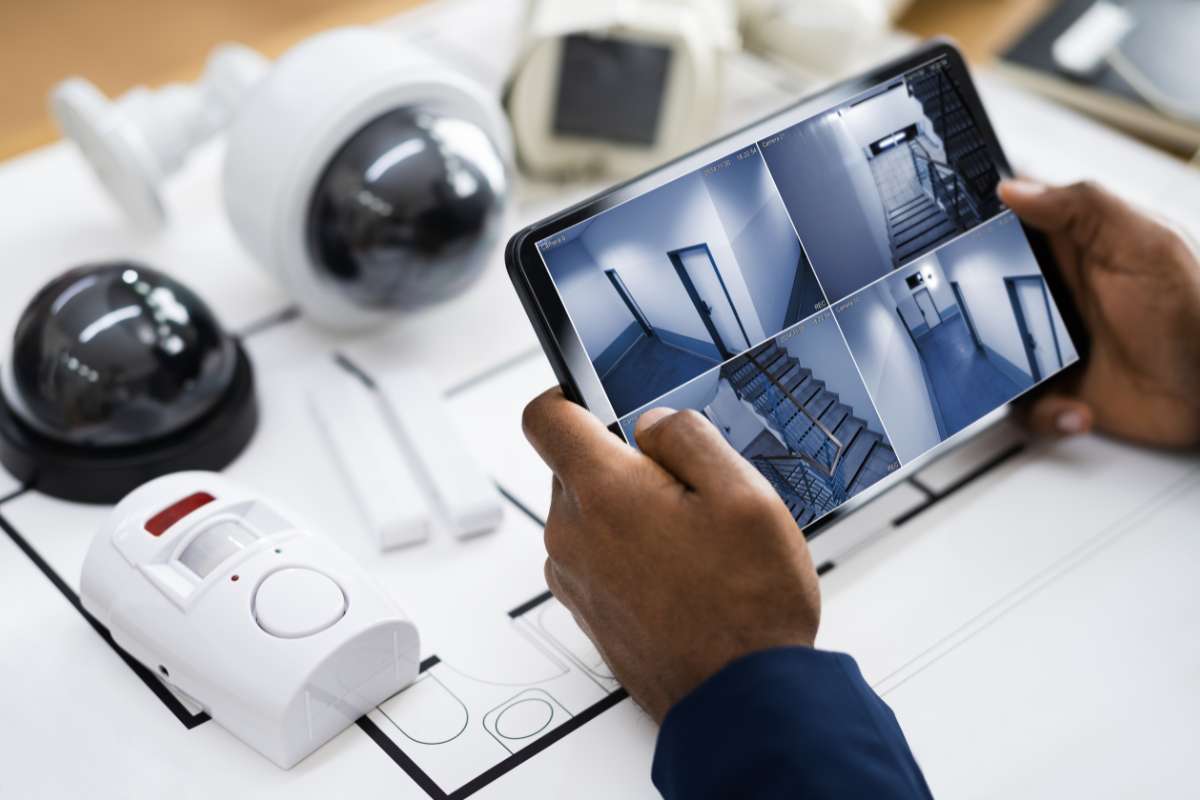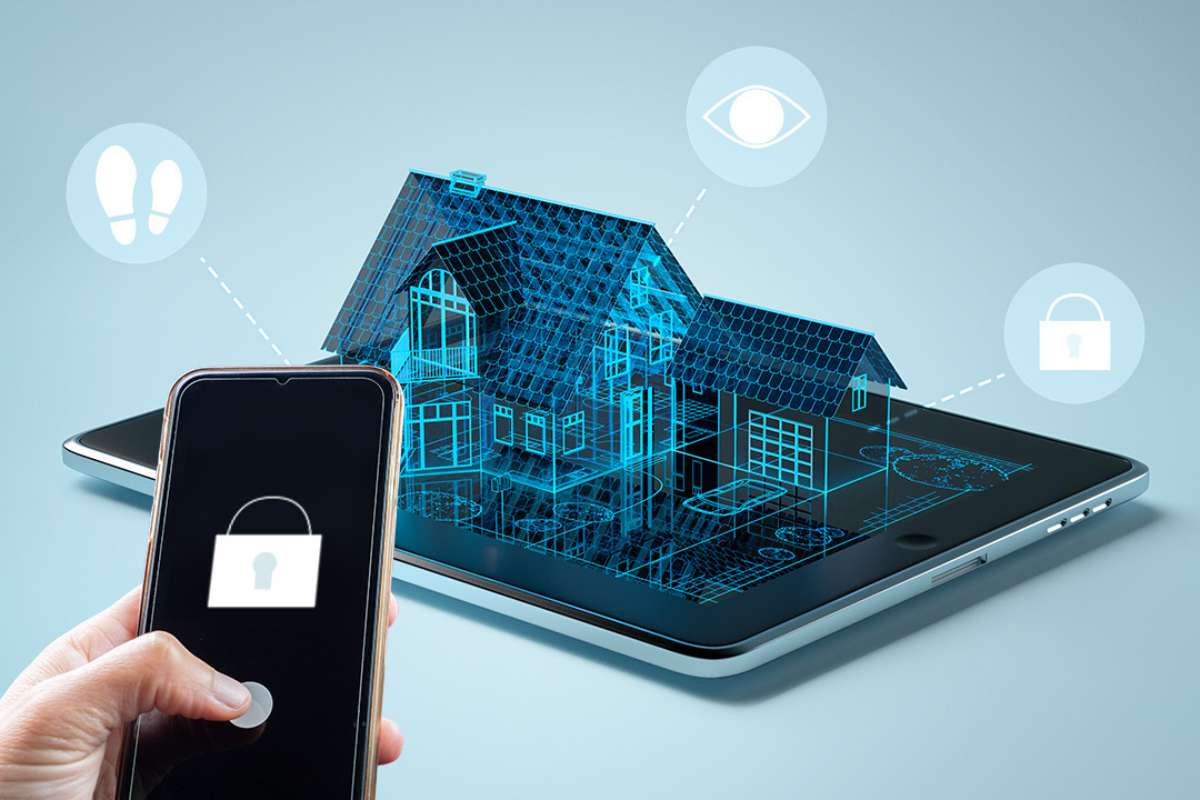Switching on the evening news and hearing about another neighborhood theft. What if the next house targeted is yours? Scary, isn’t it?
You lock the doors, double-check the windows, and even leave a light on to feel a little safer. Still, there is that lingering thought in the back of your mind, “Is it enough”? With so much uncertainty around us, where anything can happen at any time, it can make you wonder how safe your ‘safe space’ truly is. To calm this fear and give you safety assurance, an alarm security system acts as a silent guardian that keeps watch 24/7 to bring safety and peace to your life.
What is an Alarm Security System?
An alarm system for security is a group of smart electronic devices that work together to sense trouble, whether it is someone trying to break in, smoke from a fire, dangerous carbon monoxide, or even water leaks. The moment something goes wrong, the system springs into action. A loud alarm rings to alert anyone nearby, and it quickly sends notifications to your phone or emergency services. That is why so many people, like those who own a house, run a shop, or rent an apartment, rely on these systems. They not only protect your space but also help you sleep better at night, knowing someone (or something) is always on guard.
How Does an Alarm Security System Work?

The main hub of any alarm system is the control panel, which is like the command center. From here, it stays connected to different sensors placed all around your home or building, keeping everything in sync and ready to respond when something’s not right. The following are its components-
1. Motion Detectors –
Detect movement in designated areas.
2. Door/Window Sensors-
Monitor entry points for signs of forced entry.
3. Glass Break Detectors-
React to the sound of shattering glass.
4. Cameras-
Record or stream video footage in real time.
5.Keypads-
Allow users to arm or disarm the system using a code.
6. Alarms/Sirens-
Emit loud sounds to alert residents and deter intruders.
If the system is armed and any sensor picks up unusual activity, the control panel jumps into action. It sets off the alarm and quickly sends a warning either through a mobile app, a text message, or directly to a monitoring team that can call for help.
Types of Alarm Security Systems

There are several types of security systems, each of which is according for different needs and budgets. Here is a breakdown of the most common categories-
1. Wired Alarm Systems
These systems use physical wires to connect sensors and the control panel. Its installation can be complex, but they are generally reliable and ideal for large homes or commercial properties.
2. Wireless Alarm Systems
Instead of cables, these systems communicate through radio frequency signals. They are easy to install and more flexible, making them suitable for renters or smaller homes.
3. Monitored Systems
These are connected to a professional monitoring center. When the alarm is triggered, trained personnel evaluate the threat and contact emergency services if needed.
4. Unmonitored Systems
Instead of sending alerts to a monitoring center, these systems rely on loud sirens and notifications to alert property owners. They’re more affordable but may not be as effective in serious emergencies.
5. Smart Alarm Systems
These integrate with home automation platforms and allow remote control via smartphone apps. They often include features like voice control, geofencing, and integration with devices like Alexa or Google Home.
Key Features to Look For
When shopping for an alarm security system, these features can enhance both functionality and convenience-
1. Mobile App Integration-
Control and monitor your system from anywhere.
2. Remote Arming/Disarming-
Arm the system after you have left the house or disarm it for guests when you are away.
3. Real-Time Alerts-
Instant notifications via SMS or app when a sensor is triggered.
4. Video Surveillance-
Live video feeds and motion-triggered recordings.
5. 24/7 Monitoring-
Continuous support from professional monitoring centers.
6. Battery Backup-
Ensures the system works even during power outages.
7. Environmental Monitoring-
Smoke, carbon monoxide, and water leak detectors for comprehensive protection.
Benefits of Installing an Alarm Security System
A well-installed alarm security system offers a multitude of advantages, which are-
1. Crime Deterrence
Visible alarm systems, including signs and outdoor cameras which can discourage intruders from targeting your property.
2. Quick Emergency Response
Monitored systems make sure that emergencies are responded to quickly, and help in reducing damage or loss.
3. Peace of Mind
You are at home or away, knowing that your property is secure, makes you feel relaxed and focus on other priorities.
4. Insurance Benefits
Many insurance providers offer premium discounts for properties with approved alarm systems installed.
5. Remote Access
With smart systems, you can keep tabs on your home or office from virtually anywhere using your smartphone.
Who Needs an Alarm Security System?

While every home or business could benefit from enhanced security, certain scenarios make having an alarm security system particularly important-
1. Homes in High-Crime Areas-
An alarm can be a strong deterrent in neighborhoods with higher crime rates.
2. Frequent Travelers-
If you are frequently away from your property, remote monitoring becomes crucial.
3. Elderly or Vulnerable Residents-
Adds an extra layer of protection and ease of assistance.
4. Retail Stores and Offices-
Helps protect against theft, vandalism, and unauthorized access.
5. Families with Children-
Monitor who enters or leaves the house and ensure kids are safe.
Choosing the Right Alarm Security System
Here are key considerations to help you select the right system for your property:
1. Budget
Costs can vary significantly, from basic DIY systems to comprehensive monitored services. Decide how much you are willing to spend upfront and on ongoing fees.
2. Scalability
Choose a system that can grow with your needs. You may want to add more sensors or cameras in the future.
3. Ease of Use
A user-friendly system secures you and your family, and you can operate it without confusion. Look for intuitive apps and clear instructions.
4. Installation
Some systems are plug-and-play, and others require professional installation. Evaluate your comfort level and needs.
5. Reputation and Reviews
Choose products and services with positive reviews and a strong reputation for reliability and customer service.
Common Myths About Alarm Systems
Let’s bust a few myths that often discourage people from investing in alarm systems:
- Myth- They are too expensive
Many affordable and effective options exist, especially DIY wireless systems. - Myth- False alarms are a big hassle
Modern systems use advanced algorithms and dual-detection technology to reduce false alarms. - Myth- Only homeowners need them
Renters can benefit too, especially with portable, non-invasive systems. - Myth- They are complicated to use
Smart interfaces and mobile apps have made these systems incredibly user-friendly.
Conclusion
At the end of the day, we all want to feel safe at home, at work, or even when we are far away. That is exactly what an alarm security system helps with. It quietly keeps an eye on every activity, so you don’t have to worry all the time. It doesn’t have to be complicated or expensive. Modern systems are smart, easy to use, and fit all kinds of homes and budgets. You are living alone, with family, or running a business; having a system is what brings you safety and relief.






